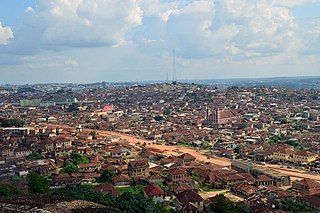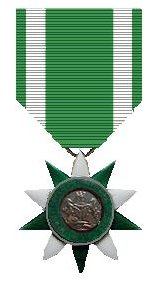| Part of a series on |
| Nigerians |
|---|
 |
| List of Nigerians |
This is a list of notable Nigerian people. It includes some but not all notable Nigerians.
| Part of a series on |
| Nigerians |
|---|
 |
| List of Nigerians |
This is a list of notable Nigerian people. It includes some but not all notable Nigerians.

The president of the Federal Republic of Nigeria is the head of state and head of government of the Federal Republic of Nigeria. The president directs the executive branch of the federal government and is the commander-in-chief of the Nigerian Armed Forces.

Ibrahim Badamasi Babangida is a Nigerian statesman and military dictator who ruled as military president of Nigeria from 1985 when he orchestrated a palace coup d'état against his military and political arch-rival Muhammadu Buhari till his resignation in 1993 as a result of the crisis of the Third Nigerian Republic following the events of June 12.

Babagana Kingibe OV GCON is a Nigerian diplomat, politician and civil servant who has held several high ranking government offices, culminating in his appointment as the Secretary to the Government of the Federation from 2007 to 2008. He spent over a decade in the Foreign Service cadre and has been in politics since the 1970s serving six heads of state; most recently as a member of the inner circle of President Muhammadu Buhari.
Dr. Bekolari Ransome-Kuti was a Nigerian physician known for his work as a human rights activist.

The military dictatorship in Nigeria was a period when members of the Nigerian Armed Forces held power in Nigeria from 1966 to 1999 with an interregnum from 1979 to 1983. The military was able to rise to power often with the tacit support of the elite through coup d'états. Since the country became a republic in 1963, there has been a series of military coups in Nigeria.
Mohammed Magoro is a retired Major General of the Nigerian army who was twice a government minister, under Generals Obasanjo and Buhari. In the April 2011 elections he was elected Senator for the Kebbi South constituency of Kebbi State, Nigeria.
The Kaduna Mafia is a loose group of Nigerian businessmen, civil servants, intellectuals and military officers from Northern Nigeria, who resided or conducted their activities in Kaduna, the former capital of the region towards the end of the First Republic.

The Independent National Electoral Commission (INEC) is the electoral body which oversees elections in Nigeria. It was established in 1998 shortly before Nigeria's transition from military to civilian rule.

Abeokuta is the capital city of Ogun State in southwest Nigeria. It is situated on the east bank of the Ogun River, near a group of rocky outcrops in a wooded savanna; 77 kilometres (48 mi) north of Lagos by railway, or 130 kilometres (81 mi) by water. As of 2006, Abeokuta and the surrounding area had a population of 449,088.
The United Nigeria Congress Party (UNCP) was a Nigerian political party. It was one of the five state-sanctioned political parties allowed by the government of General Sani Abacha to participate in state assembly elections held in December 1997, in which it won many elections, and in parliamentary elections held in April 1998. Considered by its opposition to be the army’s proxy, it dominated the Abacha transition programme.
Abdullahi Mohammed is a retired Nigerian Army major general, who served as chief of staff to presidents Olusegun Obasanjo and Umaru Musa Yar'Adua from 1999 to 2008; National Security Adviser to General Abdusalami Abubakar from 1998 to 1999; Director General of the National Security Organization from 1976 to 1979; and Governor of Benue-Plateau State, Nigeria from July 1975 to February 1976 during the military regime of General Murtala Mohammed.
Hameed Ibrahim Ali is a retired army officer and former Comptroller General of the Nigerian Customs Service from 2015 to 2023. He previously served as Military Governor of Kaduna State from 1996 to 1998. After retirement, he became Secretary of the Arewa Consultative Forum a political and cultural association of leaders in Northern Nigeria.

Sambo Dasuki is a retired Nigerian military officer who served as National Security Adviser to President Goodluck Jonathan and briefly to President Muhammadu Buhari.

The Order of the Federal Republic (OFR) is one of two orders of merit, established by the Federal Republic of Nigeria in 1963. It is senior to the Order of the Niger.

The Nigerian military coup of 1983 took place on 31 December that year. It was coordinated by key officers of the Nigerian military and led to the ousting of the democratically elected government of President Shehu Shagari and the installation of Major General Muhammadu Buhari as head of state.
The following lists and talks about events that happened in 2019 in Nigeria.
The Campaign for Democracy (CD) is a Nigerian civil society group that advocates for greater democracy in Nigeria. The group was first organized in the early 1990s to demand an end to the country's military dictatorship. The coalition organized demonstrations, strikes, and other civil resistance actions against the regime of Nigerian Military president Ibrahim Babangida from 1991–1993, particularly against the nullification of the 1993 Nigerian presidential election. At its peak, the coalition had more than 40 affiliated groups.